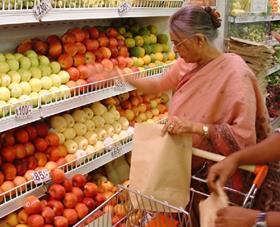
Bangladesh’s beleaguered fresh fruit import market has been dealt another blow after the country’s National Board of Revenue (NBR) hiked import duties by 20 per cent last week.
The NBR increased the so-called ‘regulatory duty’ on 71 imported items, including fresh fruit, from 5 per cent to 25 per cent. It said that the increased rate would be applied for three months to ease pressure on the country’s foreign exchange reserve.
The 20 per cent hike in the regulatory duty now brings the overall duty on fresh fruit imports to Bangladesh to 77 per cent, up from 57 per cent previously. The duty structure compromises a customs duty of 25 per cent, a supplementary duty of 20 per cent, advanced income tax of 5 per cent and the regulatory duty at the new rate of 25 per cent.
Salimul Haque Essa of Tasho Enterprises, one of Bangladesh’s leading fresh fruit importers, said the NBR's move had caused a major slowdown in sales. “It’s affected the fresh fruit import trade a lot and now all the buyers are trying to back out of new contacts due to the duty increase,” he told Asiafruit.
Essa added that the recent devaluation of Bangladesh’s currency against the US dollar–from rates of around 75 taka to over 80 taka–had further pushed up the price of imported fruits.
The duty hike is the latest in a series of issues to beset Bangladesh’s fruit import market, which is still reeling from the impact of a food scare over the use of formaldehyde solution, formalin, last year.
In July 2011, some local retailers and street vendors were found to be treating fruits with formalin prior to sale in a bid to preserve them and make them look fresh.
The media frenzy that followed the revelations, which warned of the risks the chemical posed to human health, saw sales of imported fruits grind to a halt, and key importers report that consumer demand has still not recovered.
Essa told Asiafruit that current trading conditions for imported fruits were very tough. “Oranges are coming in from Egypt but the market is not good and people are losing money. The price is only US$7.80-8.50 per carton `count 72-100` but the market is poor,” he said. “South African apples are also struggling to compete with apples from Brazil, which are around US$2 per carton cheaper on average.”



